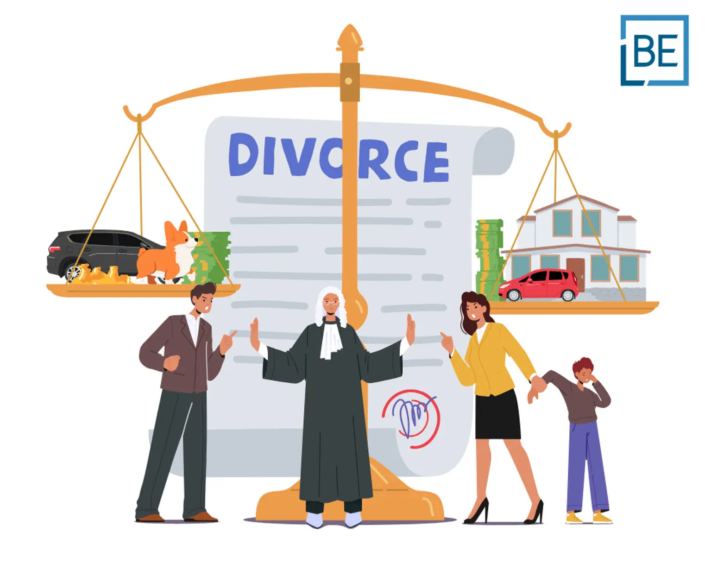Belaws Home ›› Thailand ›› Legal ›› Real Estate

legal
Real Estate
Before purchasing any property in Thailand, it is highly recommended that you have a firm understanding of the legal and practical aspects of purchasing real estate in Thailand. Buying real estate in Thailand is not a straightforward process and there are many issues for consideration, for example, foreigners can purchase a condo unit but cannot own land.
Belaws boasts a team of highly experienced expert lawyers in Bangkok, Koh Samui, Pattaya and Phuket. Our experts can provide the highest quality of assistance to you during the entire transaction process. We offer a fully comprehensive real estate service, ranging from due diligence to tax structuring and estate planning.
Thanks to our digital platform, you can get quick and clear answers to all your real estate legal questions, obtain a full report on the property titles and choose from one of our complete acquisition packages in just a few simple clicks.
before you start
Quick and clear answers to your questions
at a fixed price from expert lawyers
Quick and clear answers to your questions at a fixed price from expert lawyers
Get quick answers to your questions
before you buy a property
Obtaining clear and easy to understand legal advice on real estate in Thailand can be a complex affair. Lawyers from international law firms charge excessive fees and can often be disconnected from the transaction process outside of metropolitan areas. Whereas, lawyers from smaller markets may not work to the recognised international standards and often have to deal with conflicts between themselves and local real estate agents. These issues result in many clients either receiving inadequate advice or not receiving any advice at all. Ultimately this can lead to legal issues later on which are an unnecessary burden to the client.
Our legal consultation has been designed with the client in mind, our lawyers will provide clear and easy to understand advice which you can trust.
- Is it safe to buy land in Thailand?
- What should I check before buying a property?
- Is it legal to use a Thai company to buy a house?
- Is a leasehold safer than a Thai company to own a villa?
- Why lawyers do not provide nominee shareholders?
- Can I rent my villa or condominium on Airbnb?
- Do I need a special license for a swimming pool?
- What is the tax regime on real estate gains?
- Can I obtain a visa if I own a property in Thailand?
Book your Real Estate Consultation
Up to 1 hour.
With a Real Estate Expert.
$150 USD
Fully comprehensive package
Property Acquisition package
Condominium
FROM
THB 35,000
+ 7% VAT
- Due Diligence
- Sale and purchase agreement review
- Ownership transfer registration
Application handled by a corporate expert
Property with an existing company
FROM
THB 100,000
+ 7% VAT
- Due Diligence with English translation of the property title
- Sale and purchase agreement review
- Share transfer and change of director
Application handled by an expert lawyer in Real Estate
Property with a new company
FROM
THB 100,000
+ 7% VAT
- Due Diligence with English translation of the property title
- Company set up with English translation of the company affidavit
- Sale and purchase agreement review
- Ownership transfer registration at the land office
Application handled by an expert lawyer in Real Estate
Condominium
FROM
THB 25,000
+ 7% VAT
- Due Diligence
- Sale and purchase agreement review
- Ownership transfer registration
Application handled by a corporate expert
Property with an existing company
FROM
THB 60,000
+ 7% VAT
- Due Diligence with English translation of the property title
- Sale and purchase agreement review
- Share transfer and change of director
Application handled by an expert lawyer in Real Estate
Property with a new company
FROM
THB 100,000
+ 7% VAT
- Due Diligence with English translation of the property title
- Company set up with English translation of the company affidavit
- Sale and purchase agreement review
- Ownership transfer registration at the land office
Application handled by an expert lawyer in Real Estate
Frequently asked questions
How to check a property title in Thailand?
The property title or title deed is a document registered at the Land Office specifying the owner of a property together with the rights that may have been granted to a third party. Before buying any property in Thailand, it is necessary to check the land title and ensure that:
- The person selling the property to you is the true owner of the property and has the right to sell it to you
- There are no registered encumbrances on the property such as loan, lien, mortgage, lease, usufructs
- The transfer history does not show any suspected transactions or change in the title deed.
How can I buy a condominium in Thailand?
Under the Condominium Act, foreigners can buy and own a condominium unit freehold (100% foreign ownership). The two main conditions are (1) the ratio of units owned by foreigners in the building does not exceed 49% of the spaces of the whole units and (2) the funds to buy the unit are remitted from abroad. In practice, this ratio is not an issue in Bangkok where most condominium units are bought by Thai people but in seaside areas such as Phuket or Pattaya, freeholds units are often sold with a premium.
We have designed a full condominium acquisition package including due diligence, review of the sale and purchase agreement, opening a bank account in Thailand, liaising with the banks to arrange the international transfer, assistance at the Land Office to register the ownership transfer, preparing a will and advising you in the post acquisition obligations.
How can I buy land in Thailand?
The Thai Government has always been very concerned to restrict ownership of land to Thai citizens or their companies, which Thai citizens control. Under the Land Code, foreigners cannot own land with very few specific exceptions**. However, foreigners can take interests in land through a Thai company or with a tenure such as leasehold, usufructuary or superficies rights. The most popular options are to register a Thai company or to enter into a long-term lease agreement. Buying a property through a Thai spouse is not recommended as it cannot be jointly-owned.
• Buying land with a Thai company
A Foreigners is defined as a non-Thai individual or as a company where more than 49% of the shares is owned by foreigners. As a consequence, a company where 51% of the shares is owned by Thai persons is considered as a Thai company and can legally own land in Thailand provided that the Thai shareholders are not nominees. This is the so-called 51/49 Thai company that has been used for years by foreigners to circumvent the restrictions on land ownership in Thailand.
The Thai authorities have increased scrutiny on Thai companies with minority foreign shareholders to deter the use of “nominees” or “agents” of the foreign partners. When using a Thai company with foreign shareholders to buy and own land, it is important to ensure that Thai shareholders are real shareholders and not nominees.
• Long-term leasehold
A long-term lease (30 years) is a popular option for foreigners to get interest on land due to its simplicity. Under Thai law, leasehold allows possession and use of the land for successive terms of not more than 30 years (up to 50 years for industrial or commercial purposes under certain circumstances). Once registered at the land office (registration of the lease is mandatory if the lease period is 3 years or more), the lease becomes a lien upon the title deed (if the land is sold to a new buyer, the lessee keeps his right to use the land until the term of the lease).It should be noted that the renewal of the lease after the term is not automatic and may be hazardous if the original lessor who signed the renewal lease agreement is not here 30 years later to process the registration of a new lease with the land office. In case of death of the original lessor or sale of the land, the contractual option to renew the lease may not be enforceable against the heirs or the new landlord. This is the reason why one must be careful with the 90 years lease structure (30+30+30) that is often marketed by some promoters while it is in reality a 30 years lease with 2 options to renew for 30 years each.
To cope with the renewal issue, it is possible to use a legal entity as a lessor (the company is unlikely to pass away) and a set of legal documents to secure the renewal of the lease for successive terms. Such schemes can be complex and must carefully analyse but when properly set up they allow long-term foreign use and possession of land.
• Buying property through a Thai spouse
The Thai Government has always been very concerned to restrict ownership of land to Thai citizens to the point that until 1999 Thai citizens married to foreigners were prohibited to buy land. It is now possible for the Thai spouse to buy land provided that the land remains his or her individual property. In other words, the land cannot be jointly owned even if all the funds have been invested by the foreign spouse (the land is excluded from the communal marital property).
In practice, the officials at the land office may ask the spouses to certify that the funds used to buy the land belong to the Thai spouse and require the foreign spouse to sign a document stating that he will not make any claim on the land in the event of a divorce.
However, the foreign spouse has several options to get a minimum protection such as entering into an usufruct agreement over the land and distinguishing the ownership between the land and the building thereon (the house of the villa) as there is no restriction on foreign ownership of buildings.
How can I buy a house/villa in Thailand?
Under Thai law, there is a distinction between the land and the buildings (house, villa or simple structures). While foreigners are basically restricted from owning land (see the Section Buying Land in Thailand above, they are allowed to own buildings and constructions erected on land such as a villa.
The ownership of the buildings is not evidenced by the title deed, as it is for the land. The ownership of the buildings can be proven by considering facts and surrounding circumstances, which includes the building permit or construction permit.
In practice the land and villa are bought together but when possible, it is recommended to separate the ownership of the two properties to give additional protection to the foreigners. This will allow to mitigate the investment of the foreigner who only an interest on the land (usually through a company or a lease that can secured or not) and full ownership of the building.
Owning Land through a Thai Limited Company VS Leasehold
A Thai company is an efficient vehicle to hold property over time over a leasehold provided that the Thai shareholders are not nominees but this comes with additional costs. The key differences are highlighted below:
| THAI COMPANY | LEASE HOLD | |
| Foreign ownership | Up to 49% on the land 100% foreign ownerships on buildings | No ownership but full rights on land until the end of the lease (30 years maximum) |
| Resale | Transfer shares and change director of the company | Difficult to resale |
| Main risks | In case of nominee, penalties and obligations to restructure the company | Renewal for one or more successive terms of 30 years is not automatic and may be problematic |
| Timeline | 2 to 3 weeks | 1 week |
| Mostly used for | Holding the land for resale Own a property and ensure transfer to your heirs | Project with quick revenue (such as hotel on seaside where land is really expensive to buy freehold) Retirement |
| Set up cost | From THB 40,000 | From THB 50,000 |
What is the scope of a due diligence in Thailand?
Before buying any property in Thailand, it is strongly advised (not to say mandatory) to proceed to a due diligence as it is not uncommon to find issues that may decrease the value of the property or save you from a wrongful acquisition. If you are buying only land directly from an individual owner, our online property title check may be sufficient but if the land is owned by a company and/or if you are buying the land together with a house or a villa on it, you must proceed to a full due diligence.
Our due diligences include checking:
- True owner: The person (individual or company) selling the property to you is the true owner of the property and has the right to sell it to you
- Accuracy: The land size, shape, orientation of the property and its border to public property, such as road, stream or beach matches with the land title
- Free of any rights: There are no registered encumbrances on the property such as loan, lien, mortgage, lease, usufructs, servitudes etc.
- Access: Legal right of access to the land from a public road
- Full history: The history of the purchased land (subdivision, upgrades and transfer) does not show any suspected events
- Permitted uses: Zoning regulations limiting the use of the land depending on its location
- Building (house or villa): the address of the building and whether it has been built legally with a valid building permit
- Thai company (optional): if you buy the land through a Thai company, checking the company registration documents, financial statements, contracts signed by the company and disputes before the Thai courts
- Sale and Purchase Agreement (optional): reviewing the Sale and Purchase Agreement to ensure that it includes necessary protection for the buyer or the seller



